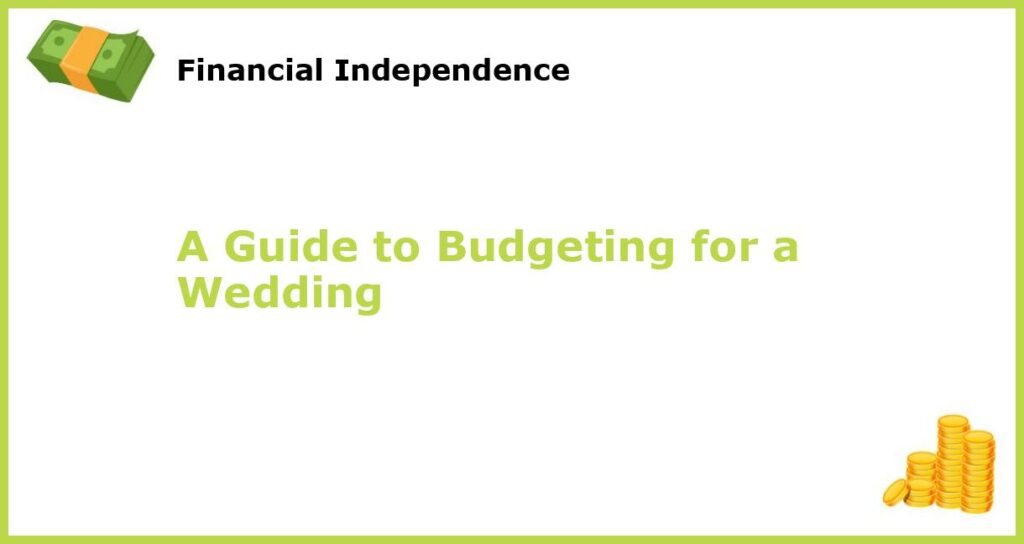Weddings are a special occasion, however, planning and budgeting for one can be overwhelming, especially for couples on a tight budget. Therefore, it is crucial to prioritize and plan for the most important aspects of a wedding while cutting costs on areas that are not a priority. In this guide, we will highlight ten essential tips for budgeting for your dream wedding.
1. Setting Your Wedding Budget
The first and most crucial tip when planning your wedding is setting your budget. Before you start planning, sit down with your partner and determine how much you can afford to spend. Be realistic and consider the unexpected expenses that may come up. Once you have a budget in place, it is easier to start prioritizing what is most important.
It is also a good idea to research the average cost of weddings in your area. Understanding the market rates for different vendors or services will help you set a realistic budget.
2. Prioritizing Your Expenses
After setting your budget, determine the most critical aspects of your wedding and allocate more funds to those areas. Choose the aspects that reflect you and your partner’s personalities and vision for the wedding. For instance, if the location matters more than the wedding dress, allocate more funds to the venue and less to the dress.
While prioritizing your expenses, it is worth noting that not everything has to be expensive to be perfect. With a little creativity, you can make your wedding day memorable and fun without compromising on quality.
3. Choosing Your Venue
Choosing the wedding venue is likely to take up a significant portion of the budget. Conduct research on various venues that are within your budget and confirm their availability on your wedding day. Consider unique venues such as a beach wedding, garden wedding or even a backyard wedding to cut costs without compromising on the experience.
You can also consider scheduling your wedding during the off-season or on a weekday to take advantage of lower rates.
4. Creating Your Guest List
The number of guests you invite directly impacts your wedding budget. Fewer guests mean less money spent on food, drinks, and decorations. Keep the guest list small and invite only the closest family and friends. This excludes coworkers or distant relatives who you may not be close to, saving both money and space while still celebrating with the people who matter most.
5. Choosing Your Wedding Attire
Wedding attire can be a significant expense for couples on a budget. However, there are ways to save money without sacrificing the look and feeling of the day. For example, consider renting tuxedos or dresses or buying off-the-rack options or a used wedding dress. Do not forget to budget for alterations as well.
6. Planning Your Menu
Food and drinks can have a big impact on the wedding budget. Consider serving hors d’oeuvres instead of a full meal or having a buffet-style dinner. You can also cut costs on alcohol by having limited drink options such as beer and wine only.
Ensure that you communicate your food preferences or allergies with your caterer to work out a menu that works for you within your budget.
7. Choosing Your Wedding Vendors
When choosing wedding vendors, research different options and compare prices. Some vendors offer package deals or discounts for booking multiple services. When speaking to vendors, do not be afraid to negotiate prices to fit within your budget.
You can also ask for referrals from friends and family members who recently got married. They can offer insight about vendors, such as their quality of work, responsiveness, among other helpful information.
8. DIY Wedding Decorations
For couples looking to save costs on decoration, DIY decorations are an excellent option. Consider making your centerpieces or creating your wedding favors. Also, check out thrift stores or online marketplaces for affordable decorations.
You can also check with your venue or vendors for decorations they offer as part of their service. Do not hesitate to ask for what you need—remember, saving money is all about being creative.
9. Planning Your Honeymoon
Planning the honeymoon is an important aspect of the wedding, but it is essential not to overspend. Research different locations and identify the most affordable packages within your budget. You can also consider a shorter trip to save money or look for travel deals online or through travel agents.
10. Sticking to Your Budget
Finally, it is important to stick to your budget. Keep track of your expenses and make adjustments, if necessary. Remember, the most important thing is celebrating your love with those closest to you, and it doesn’t have to cost a fortune.
The wedding planning process can be stressful, but with the above tips and a little effort, you can have a memorable day of your dreams without breaking the bank.







